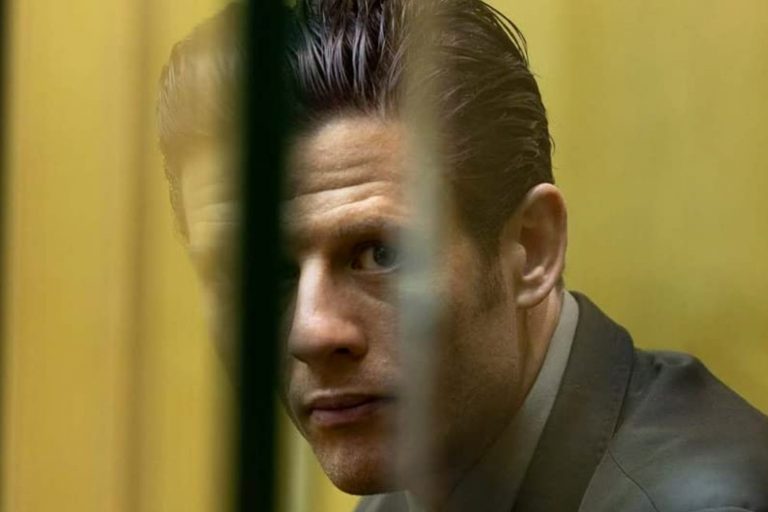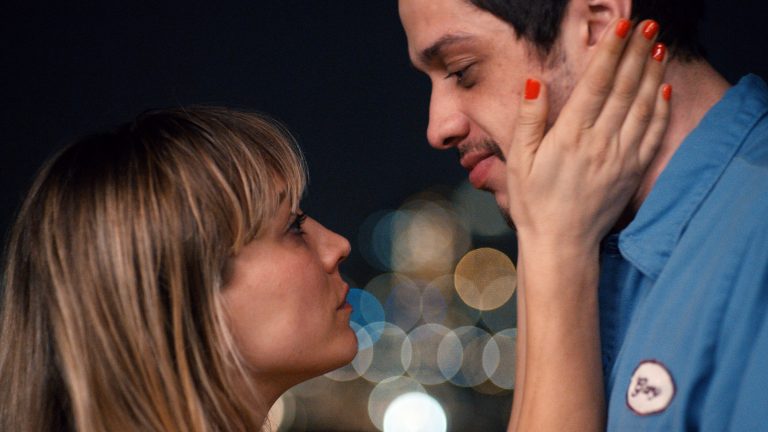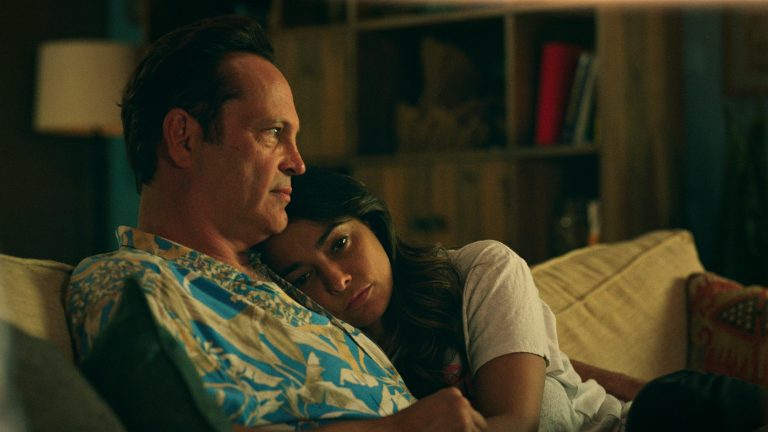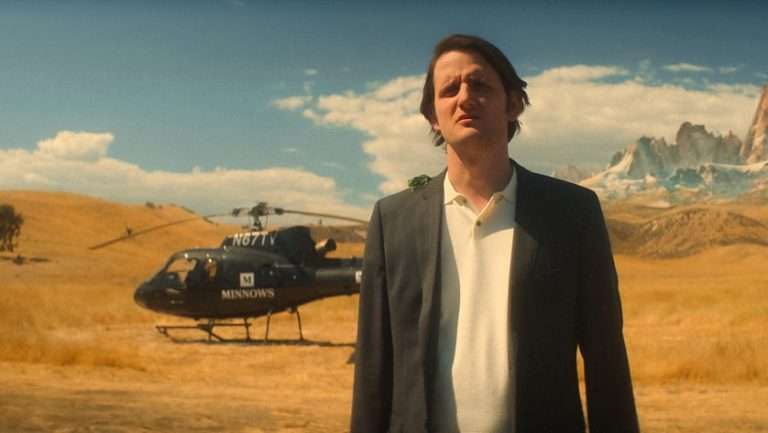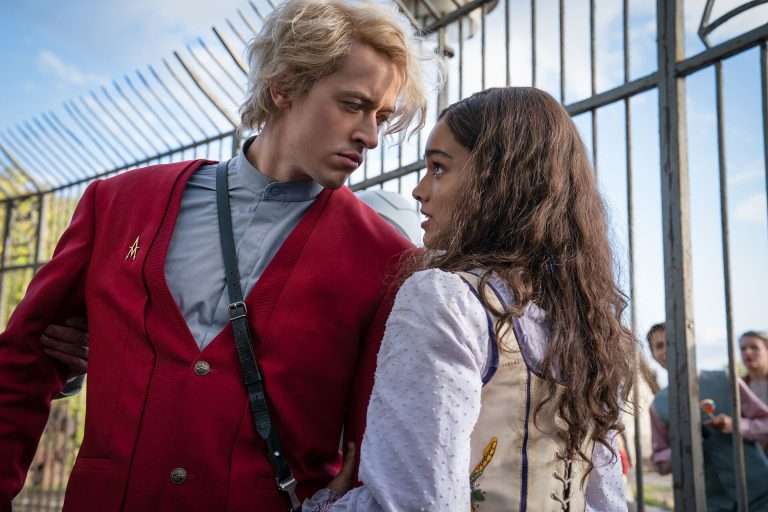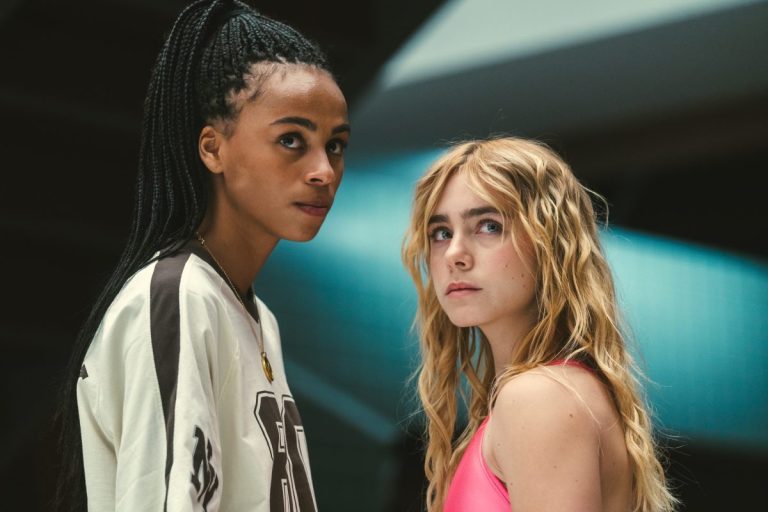Jerry Seinfeld’s “Unfrosted” is a fictionalized look into the American cereal industry in the 1960s. Legitimate brands are invoked. Certain historical events and scandals are riffed on for humor, but the brand of comedy it deploys is so deflatingly low-IQ that it’s embarrassing to even call this hotchpotch of situations a film.
Unfrosted (2024) Plot Summary & Movie Synopsis:
The film adopts the laziest framing narrative, with Kellogg’s executive Bob Cabana (Jerry Seinfeld) essentially recounting stories of his company to a disgruntled kid. We are taken to the 1960s. If there was any dominating influence on the American cereal scene, it was Kellogg’s. Its unbridled supremacy was challenged only by the Post. The companies had always been arch-rivals and engaged in trying new experiments to win swathes of customers. Cabana had always dreamt of a unique jelly-filled pastry but kept running into dead ends.
The experiments kept backfiring. One day, Cabana comes across two kids riffling through the dumpster. Enquiring into their condition, he is informed of a particularly delicious remnant in the garbage the kids enjoyed. When he has a bite, he instantly realizes this, which came from the garbage of Post, could be a surefire hit if the company managed to push for its mass production. He is certain he has to hurry the process of invention and manufacture.
Cabana ropes in an ex-Kellogg’s NASA scientist, Donna Stankowski (Melissa McCarthy), because of her acumen in food innovation. He knows he has to beat the Post in the race to produce the heatable, fruit-filled pastry that would have the maximum shelf life. Stankowski brings in the most eclectic minds to work on the product. This race is obviously a nod to the space race between America and Russia. Even the Vietnam War gets a cursory mention. These are all meant to be playful ribbing, except that it barely manages to sustain our interest.
Initially, the group’s efforts don’t pan out as desired, resulting in a scramble of inventions. They even attempt to cut off the sugar supply to the Post to defer their development process, which only attracts geopolitical quandaries when the Post’s boss (Amy Schumer) solicits Russian support. It lands the country in troubled waters for a moment since a political breach is being committed.
It is only when the two kids suggest to Cabana and his team to be inventive and try jumbling a combination of what was already available instead of digging through the old-school methods that Kellogg’s scores a breakthrough. With the combined efforts of the uniquely composed groups, the company finally makes a new breakfast pastry.
Unfrosted (2024) Movie Ending Explained:
Did Kellogg’s Win The Race?
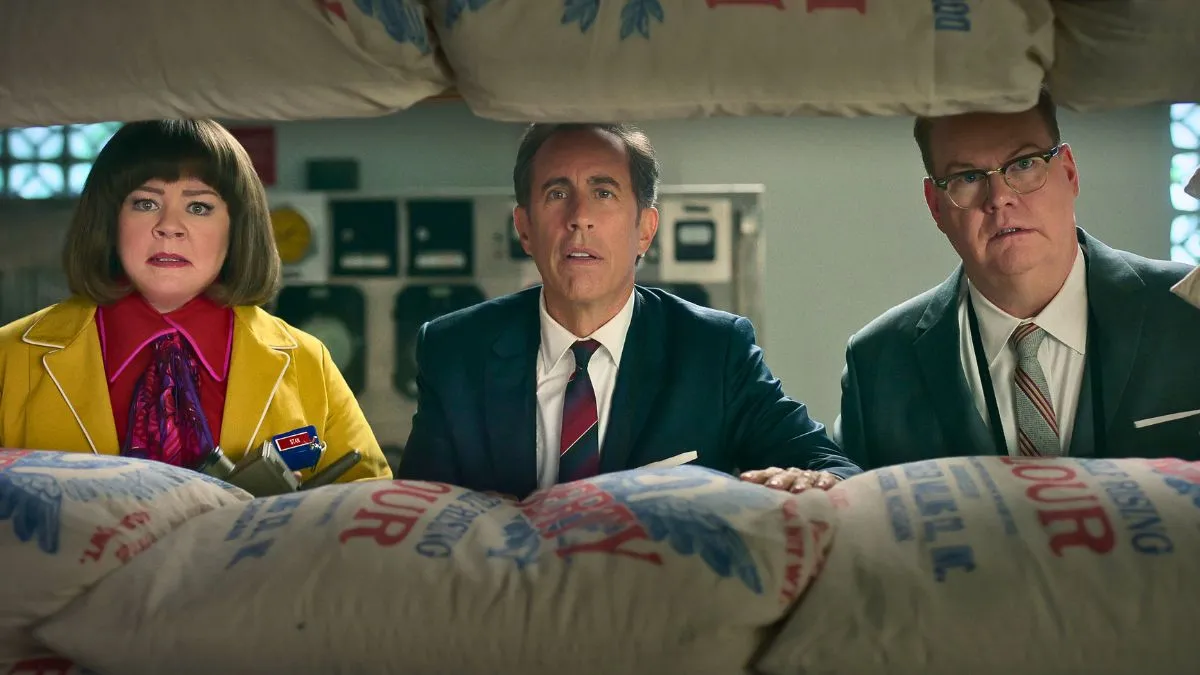
But there’s also an actor and singer, Thurl Ravenscroft (Hugh Grant), who tries to stir protest. As a mascot of Kellogg’s, he had felt under-appreciated and thereby spurred a protest to prevent the signage of the FDA approval on the new pastry. With the new pastry, his requirement would be put under immediate threat of negation. However, his plan misfires and the company succeeds in man-handling its way to secure the stamp. Ultimately, it came to the naming of the pastry. It is the consequence of the news anchor’s addled slippage that Pop Tart gets registered as the name, which becomes an instant raging hit with millions of children in America. With that, Kellogg’s manages to secure its full and ultimate grip as the leader of the competition yet again.
Unfrosted (2024) Movie Review:
There’s something undeniably marvelous about the existence of a truly terrible film. Yes, the medium is such that subjectivity of responses is inherent, but when does a film turn out as so actively awful that opinions can’t help but be unified? What makes the sheer atrociousness of the film so immense that it’s impossible to look for pockets of hope and redemption in its unremitting, dire stupidity?
There’s a minimum standard of intelligence the film should respect and reward, even in humble ways. The film can be something rudimentary yet pleasing and satisfying. It need not be super nifty or heavily layered to evoke an emotion from the audience. These may sound juvenile thoughts to spell out, but I kept being accosted by them while I watched “Unfrosted.” This is a film so mightily committed to being puerile in the worst ways imaginable that there’s a little reprieve for a viewer who may innocently try to enjoy it.
But there are no breezy vibes in the film, exacerbated by the desperation of it trying to be funny and light but ultimately continually coming off as painfully dull. Almost as soon as it kicks off, “Unfrosted” sorely starts testing your patience with its wilful apparent brain-dead poseur that reveals itself as solely and entirely careless, be it in mounting ridiculous, purposeless goofy sequences like a peculiar funeral circus-like ceremony or a food-testing situation including NASA-level protection gear nevertheless ending in tragedy.
This is one of those films that disposes of its arsenal of wonderful actors with the most perfunctory manners conceivable. Look at the cast. There’s Melissa McCarthy, Amy Schumer, and Hugh Grant, among an enviable ensemble, all of whom are effectively squandered. It even ropes in Dan Levy for the most thankless cameo. You keep scratching your head, wondering what the makers and cast were smoking when they signed up for this and actually performed this incoherent, flat, and humiliatingly ludicrous trainwreck.
Obviously, you cannot expect characterization to develop in such a film, yet it dares to rake up the most dated tropes in its allusions to a repressed romantic spark between the bosses of the rival companies. The whole film reeks of a blinded senselessness, evoking a bloated enterprise that lurches through a flimsy narrative, if we can regard it so, with the most spectacular randomness. Where’s the tension of outwitting one’s rival? There’s none here. What persists is a curious tedium that keeps rising with the urgency that should have instead been palpable in the race, which is primed as central to the plot mechanics.



